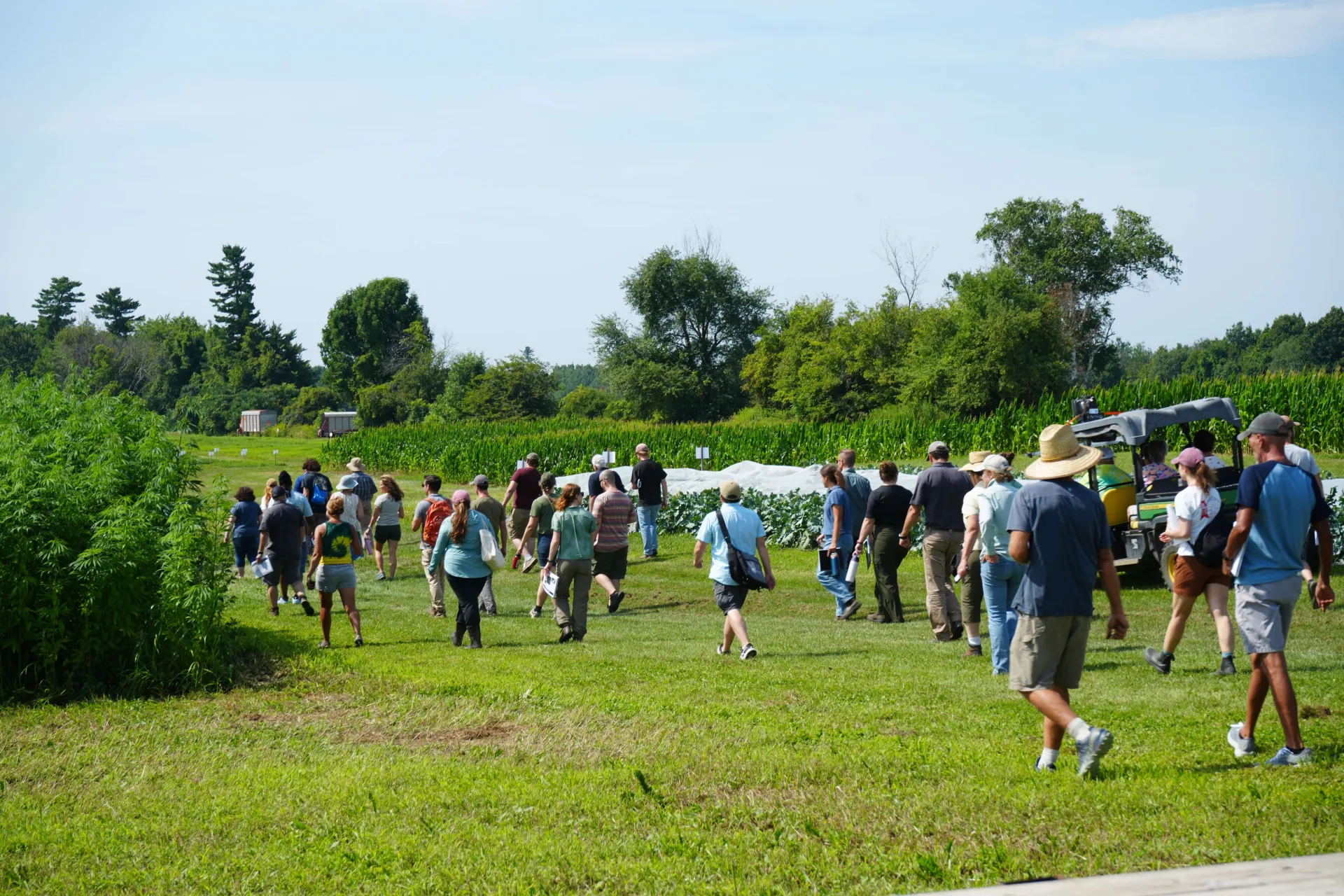On July 24, 2025, Borderview Research Farm in Alburgh, Vermont, buzzed with energy and excitement as more than 200 farmers, conservationists, researchers, scientists, educators, agronomists, service providers, and community members gathered to learn and connect. Among them was Dr. Linda Prokopy, the new dean of UVM’s College of Agriculture and Life Sciences, who enjoyed her first Crops and Soils Field Day, calling it “an event to learn all things farming!”
This year marked the 18th Annual Crops & Soils Field Day. The first one took place a few years after UVM Extension Professor Heather Darby, an agronomist and soil scientist, joined the Northwest Crops and Soils (NWCS) Program. The field day has grown into the program’s largest outreach event of the year, consistently drawing more than 200 attendees. Roger and Claire Rainville own Borderview Research Farm and have generously hosted Dr. Darby’s research there for the past 20 years. The annual field day and all NWCS research wouldn’t be possible without their dedication to agriculture, farming, and innovation. Thank you, Roger and Claire!
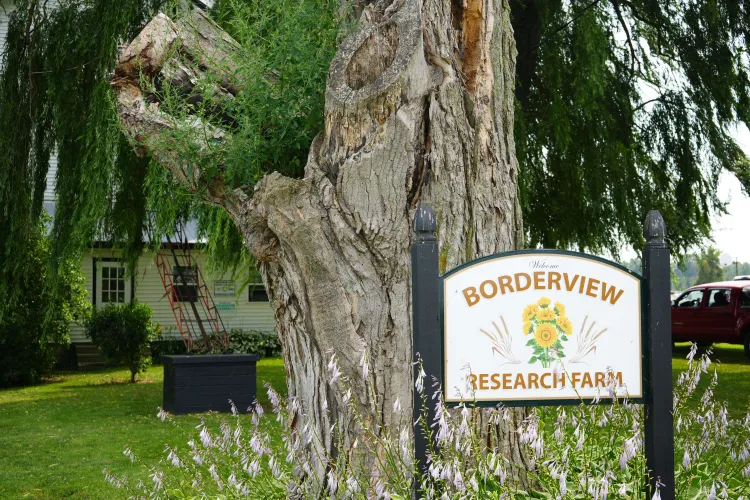
Upon arrival, guests warmly greeted one another. Because the growing season is the busiest time of year for farmers, field days are an important opportunity to reconnect! The fact that so many farmers took time away from their fields to learn from Dr. Darby and the whole research team shows the value this event holds for them.
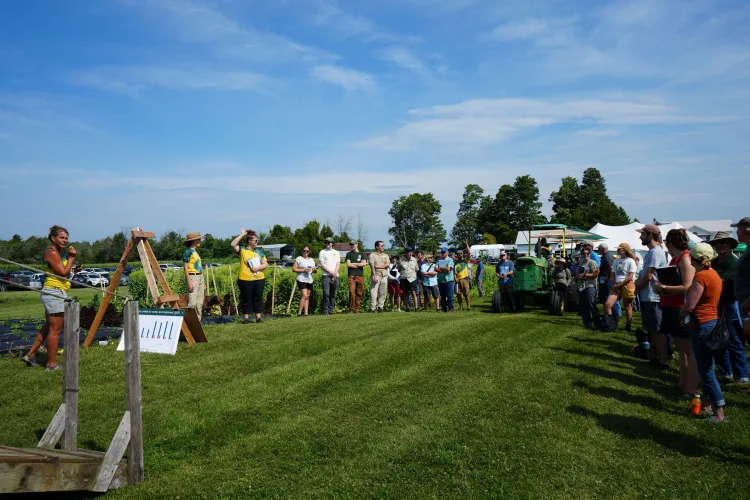
The day began with a welcome message from Dr. Darby, and then everyone headed out into the fields for the farm tour. The first stop was at the newly constructed hoop house, where lettuce, tomatoes, and broccoli are grown for the Organic Seed Production Research on Economics and Yield project. Folks gathered around Dr. Darby and her team of researchers as they shared updates about ongoing projects and introduced new projects, such as the software that is currently in development for Vermont’s On-Farm Research Network.
The tour covered a wide range of topics, from aerial drones to neonicotinoid research. At each stop, NWCS staff not only explained their research but also invited questions, hands-on demonstrations, and lively discussions, making complex agricultural science accessible to all who attended.
"I've come here for events before, but having an event that's focused on exploring exactly what each project is about and breaking down why the research is being done and its applications in the real world has been really awesome," said Morgan Pratt, Natural Resource Conservation District Agricultural Programs Specialist.
After a catered lunch, guests could choose from six breakout sessions, presented by UVM staff and special guests. One such guest was Quebec soil and water conservation expert Odette Menard, who returned by popular demand after her presentation at the 2025 No-Till and Cover Crop Conference. Her session on soil profiles and compaction was informative, engaging, and surprising! She shared practical insights, such as how adjusting tractor tire pressure can help minimize soil compaction, and introduced C.R.O.P.—cover, porosity, oxygen, and roots—an acronym she uses to remember the key factors for maintaining healthy soils. Odette’s presentations always strike the perfect balance between knowledge and humor, and attendees left her session with fresh ideas and practical strategies to implement on their farms.
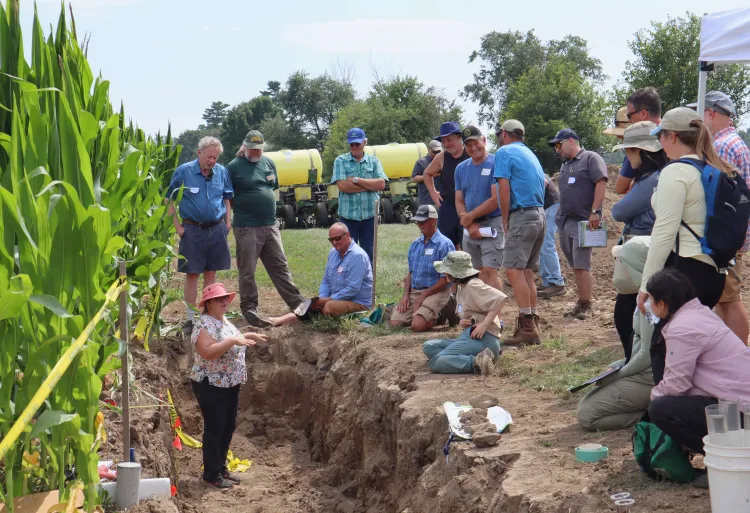
Under the tent, Roy Desrochers of the NWCS team led the honey Sensory Taste Session. During this session, guests tasted honey samples, and Roy helped them identify different and off-flavors. Once the group identified the flavors, Roy used his knowledge to explain where in the honey-making process these flavors may have developed. Honey can have different floral tastes depending on the source of the pollen. Off-flavors can develop if there are issues with packaging, storage, or transportation.
Inside the barn, Laura Sullivan of the NWCS team demonstrated how she has been using the hemp fiber hackler to process winter- and field-retted hemp. This hackler, a long-fiber processing machine, is the only one in the United States. Laura also showed six wool-hemp yarn prototypes developed in collaboration with Battenkill Fibers in Greenwich, New York. Some of these yarns will be used for clothing, and she is working with Muriel’s of Vermont to create wearable items. Laura and the NWCS team are working to expand our understanding of how to use alternative and natural fibers to make more sustainable products.
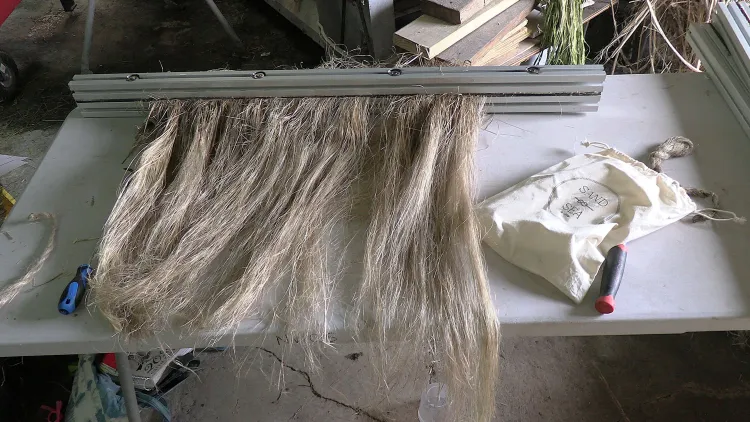
Near the strawberry crop, Ann Hazelrigg, Giovanna Sassi, and Olivia Rist from the UVM Plant Diagnostic Clinic, and Kellie Damann of NWCS hosted the session on Integrated Pest Management Strategies for Field Crops. They chronicled the strawberry pest and disease research trials at Borderview and on many farms across the state. They explained what to look for when scouting for disease and insects in the field. They also presented seed testing disease data from 2024-2025 steam or ozone treatment trials on hemp and grains. Results and conclusions from these trials will be released soon. Make sure to keep checking our website, social media, and monthly newsletter for updates!
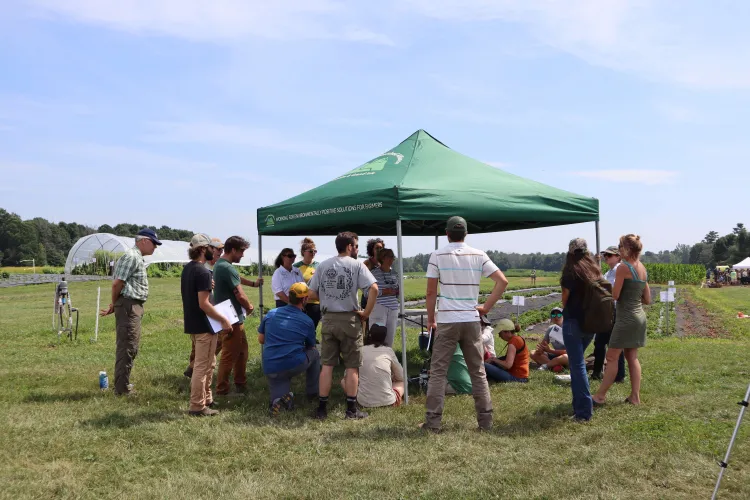
John Bruce of the NWCS team and Crystal Stewart-Courtens of Cornell University led a session on organic seed production and seed cleaning. John is leading a trial investigating organic vegetable seed production, and he demonstrated the seed collection process. Crystal showed how to use the mobile seed cleaner, which contains a Winnow Wizard, a small-scale thresher, hand screens, and other tools for small-scale seed cleaning.
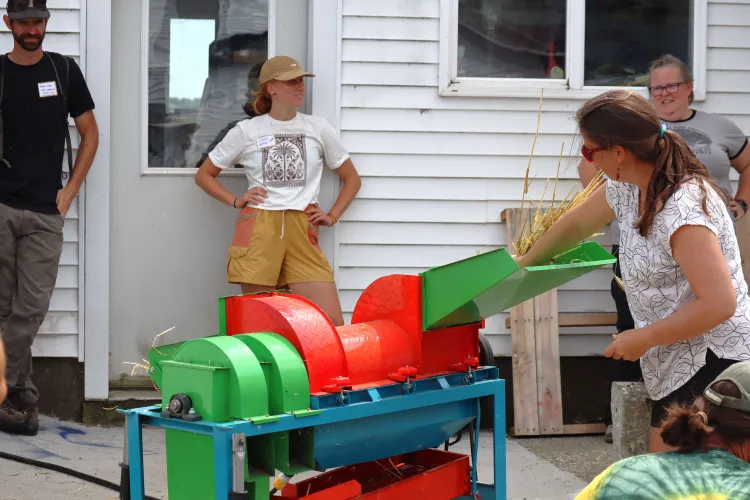
Amber Machia of NWCS and Kurt Cotanch, an independent dairy consultant, threw the Preservation Party. This session was all about fermentation fun! Guests learned about best practices for ensuring high feed quality, including tips on production, storage, and the characteristics of good feed. This session is part of a larger project to educate Vermonters about silage and feed quality.
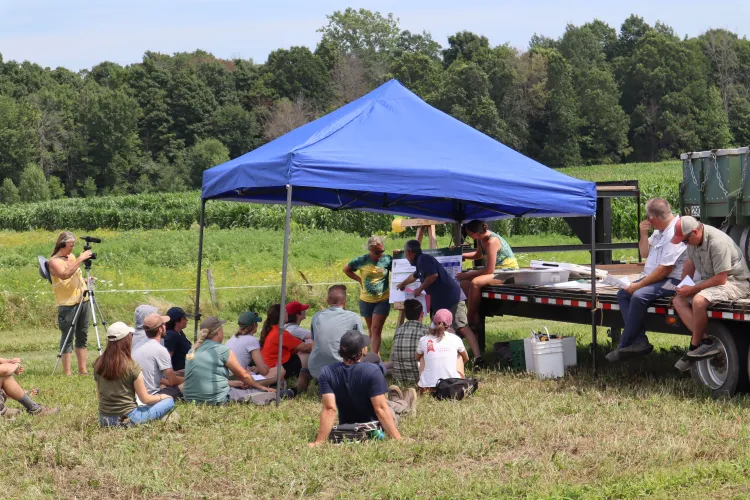
Dr. Linda Prokopy, dean of CALS at UVM, feels that on-farm field days are “…so important! For farmers to be able to come out and see different practices being trialed, hear from scientists, and talk to other farmers- it’s really a great event.” Gatherings such as the Annual Crops & Soils Field Day exemplify why the NWCS team conducts research. We love helping Vermont agriculture! We are so thankful that we get to continue to conduct and share our work with you all. Thank you again for your continued support. We can’t wait to see you next year!
